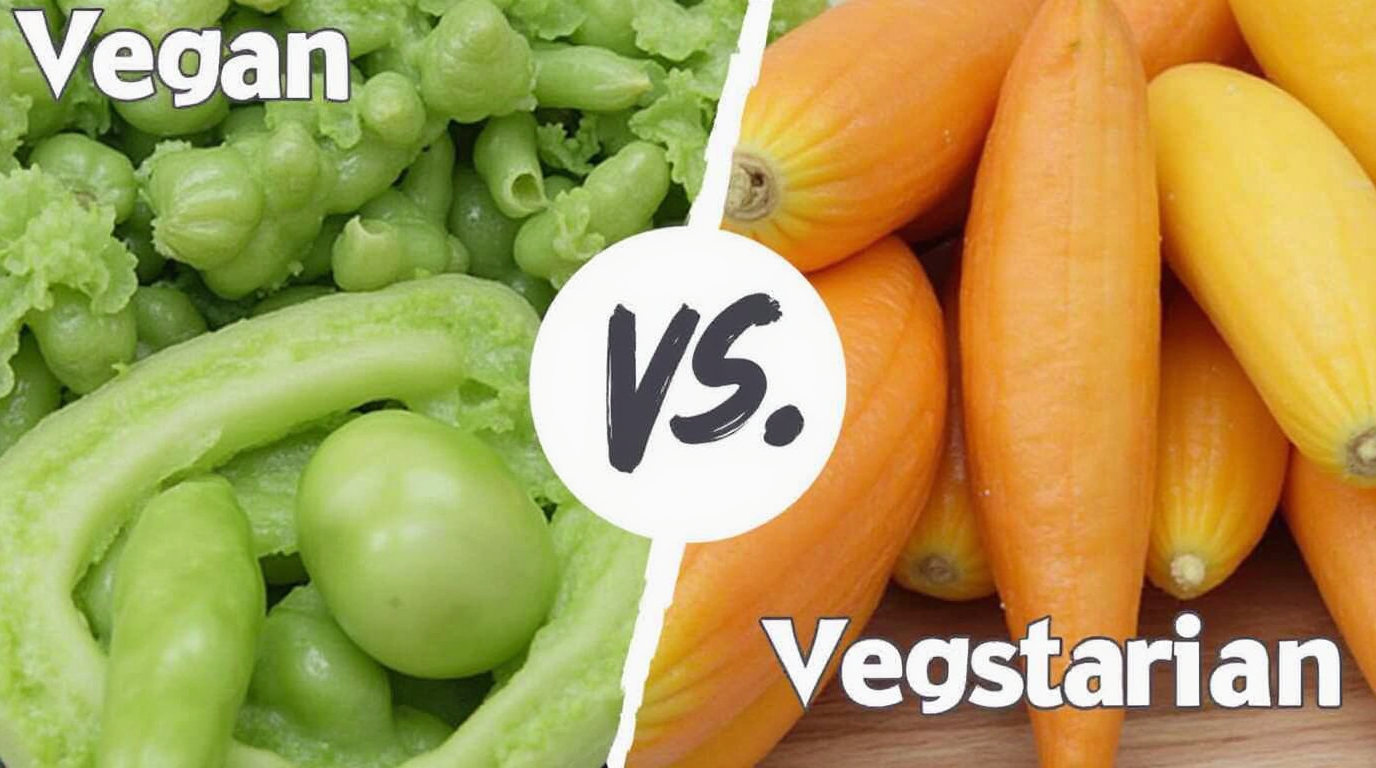Vegan vs. Vegetarian: What’s the Difference?
Table of Contents
In today’s world, where health-conscious eating and ethical food choices are becoming increasingly popular, two dietary lifestyles stand out: veganism and vegetarianism. While both emphasize plant-based foods, they differ in scope and philosophy. Understanding these distinctions can help you decide which approach suits your lifestyle, values, and nutritional needs best.
What is a Vegetarian Diet?
A vegetarian diet is defined by its exclusion of animal flesh, including meat, poultry, and fish [[1]]. This dietary choice has historical roots that date back centuries, with many cultures embracing vegetarianism for religious, ethical, or health reasons. However, not all vegetarians follow the same rules. Within the vegetarian spectrum, there are several subcategories:
Lacto-Ovo Vegetarians
Lacto-ovo vegetarians avoid animal flesh but include dairy products and eggs in their diet. This group represents the most common form of vegetarianism, offering flexibility while still adhering to the principle of avoiding meat [[6]].
Lacto Vegetarians
Lacto vegetarians take it a step further by excluding eggs along with meat, poultry, and fish. They consume dairy products such as milk, cheese, and yogurt, making this variation suitable for those who want to eliminate eggs for ethical or dietary reasons.
Ovo Vegetarians
Ovo vegetarians avoid all animal products except eggs. This subset of vegetarians may find eggs to be a valuable source of protein and nutrients, especially when combined with a plant-based diet rich in vegetables, grains, and legumes.
Collectively, these variations highlight the adaptability of vegetarianism, allowing individuals to tailor their diets based on personal preferences and values.
What is a Vegan Diet?
Veganism takes vegetarianism to the next level by eliminating all forms of animal exploitation and cruelty. A vegan diet excludes not only meat, poultry, and fish but also dairy, eggs, honey, and any other ingredients derived from animals [[5]]. Beyond diet, veganism extends into lifestyle choices, advocating for the avoidance of animal-derived products like leather, silk, wool, and cosmetics tested on animals [[3]].
To adhere to a vegan diet, individuals must scrutinize ingredient lists carefully. Common animal-derived additives include gelatin (found in gummy candies), honey (used as a sweetener), carmine (a red pigment made from insects), pepsin (an enzyme sourced from pigs’ stomachs), shellac (a resin secreted by insects), albumin (derived from egg whites), whey and casein (milk proteins), and certain forms of vitamin D3 (synthesized from lanolin) [[4]].
This strict adherence underscores the ethical commitment inherent in veganism, making it more than just a dietary preference—it’s a holistic way of living aligned with compassion toward animals and the environment.
Nutrition Considerations for Vegetarian and Vegan Diets
Both vegetarian and vegan diets share some common nutritional characteristics. They tend to be low in saturated fat and cholesterol while being rich in vitamins, minerals, fiber, and beneficial plant compounds [[10]]. These qualities contribute to lower risks of chronic diseases such as heart disease, diabetes, and certain cancers. However, each diet comes with unique considerations regarding nutrient intake.
Potential Nutrient Deficiencies
While both diets offer numerous health benefits, careful planning is essential to prevent deficiencies in key nutrients. For example:
- Iron: Plant-based sources of iron (non-heme iron) are less bioavailable than heme iron found in animal flesh.
- Calcium: Vegans may struggle to meet calcium needs without fortified foods or supplements since they exclude dairy.
- Zinc: Found abundantly in meat, zinc absorption from plant foods can be hindered by phytates.
- Vitamin D: Both groups might lack sufficient sunlight exposure or fortified foods to maintain adequate levels.
- Vitamin B12: Naturally occurring in animal products, B12 is virtually absent in plant foods, posing a significant challenge for vegans [[8]].
- Long-chain Omega-3 Fatty Acids: Essential fats like EPA and DHA are primarily found in fish and seafood, necessitating supplementation or consumption of algae-based alternatives for vegans.
Additionally, processed vegan and vegetarian foods—such as plant-based burgers, snacks, and desserts—can sometimes be high in added sugars, sodium, and unhealthy fats. While convenient, these items should be consumed sparingly to maintain overall health.
Which is Healthier?
According to the Academy of Nutrition and Dietetics, well-planned vegetarian and vegan diets are appropriate for all life stages, from infancy through adulthood [[9]]. Both approaches have been shown to reduce the risk of chronic illnesses; however, nuances exist between the two.
Vegetarians generally consume slightly higher levels of calcium and vitamin B12 compared to vegans due to their inclusion of dairy and eggs. These nutrients play critical roles in bone health and neurological function, respectively. On the other hand, studies suggest that vegans may experience a marginally lower risk of type 2 diabetes, heart disease, and certain cancers compared to vegetarians, likely due to their complete elimination of animal products [[8]]. However, most evidence supporting these claims comes from observational studies, meaning causation cannot be definitively established.
Regardless of which path you choose, regular blood tests, nutrient analysis, and appropriate supplementation are vital for maintaining optimal health. Consulting a registered dietitian can provide personalized guidance tailored to your specific needs.
Veganism is About More Than What You Eat
For many, veganism transcends dietary boundaries and becomes a lifestyle rooted in animal rights and environmental sustainability. Ethical vegans actively boycott industries that exploit animals, whether through clothing (avoiding leather, fur, and wool), entertainment (rejecting zoos, circuses, and marine parks), or consumer goods (choosing cruelty-free cosmetics and household products). Moreover, environmental motivations drive many to adopt veganism, as livestock farming contributes significantly to greenhouse gas emissions, deforestation, and water pollution [[3]].
Choosing veganism often reflects a broader commitment to creating a kinder, more sustainable world—a philosophy that resonates deeply with those passionate about global issues.
The Bottom Line
To summarize, vegetarianism and veganism represent distinct yet interconnected paths within the realm of plant-based eating. Vegetarianism encompasses a spectrum of dietary practices, ranging from lacto-ovo to ovo vegetarians, while veganism stands as the strictest form, rejecting all animal-derived products [[2]]. Both approaches can be safe and nutritious if meticulously planned, though vegans face additional challenges in meeting certain nutrient requirements, particularly vitamin B12 and omega-3 fatty acids.
Ultimately, the decision between veganism and vegetarianism depends on your values, goals, and willingness to commit to dietary planning. Whether motivated by health, ethics, or environmental concerns, embracing either lifestyle offers an opportunity to nourish your body while aligning with principles that matter most to you. By staying informed and proactive, you can enjoy the myriad benefits of plant-based living while minimizing potential pitfalls.







